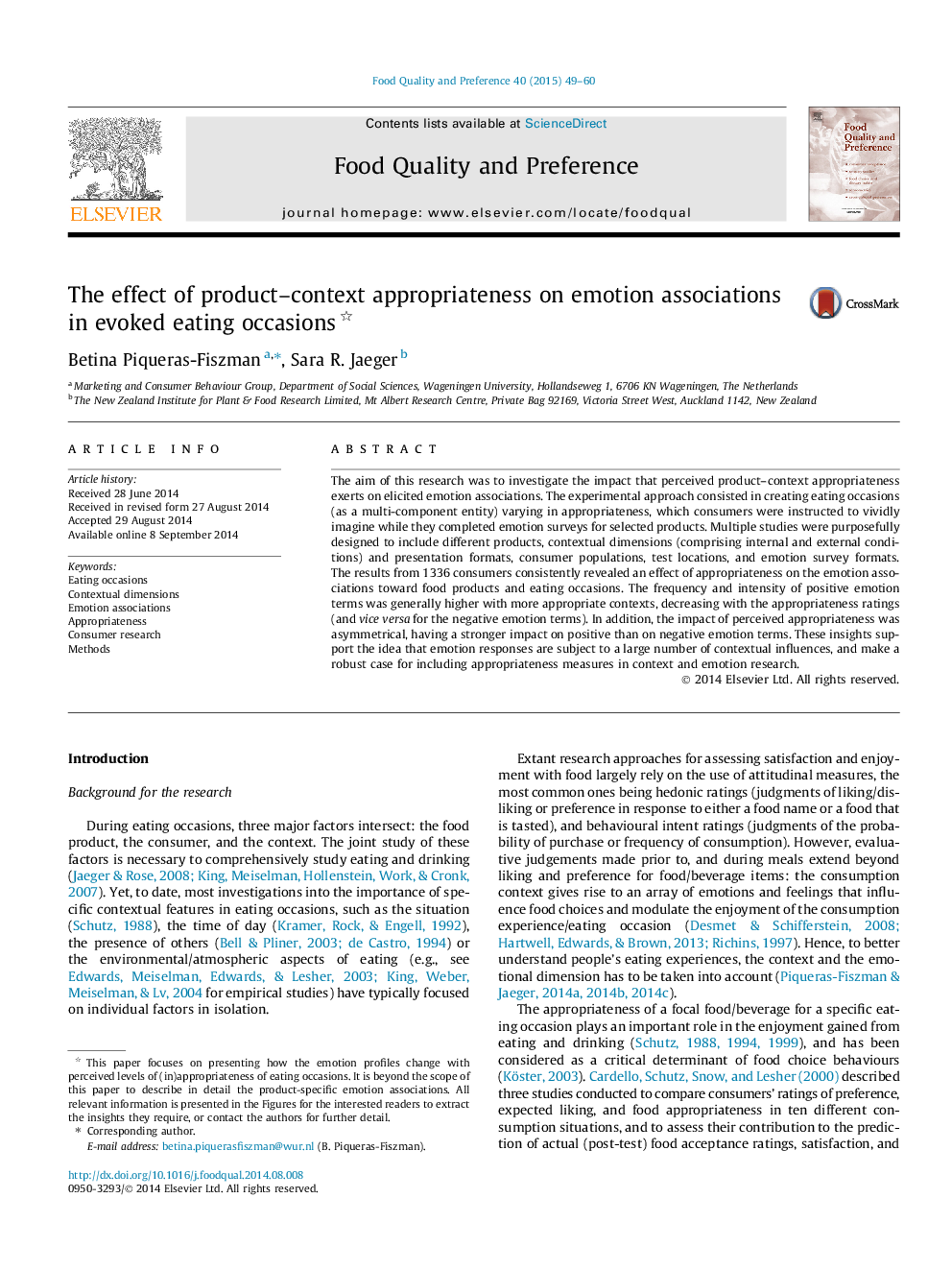| Article ID | Journal | Published Year | Pages | File Type |
|---|---|---|---|---|
| 4317062 | Food Quality and Preference | 2015 | 12 Pages |
•Product–context appropriateness underpins emotion associations.•Eating occasions were conceptualised from holistic and multi-component perspectives.•The frequency/intensity of positive emotion terms increases with appropriateness.•Appropriateness has a product-specific, asymmetrical effect on emotion associations.•The impact of variations of context dimensions on appropriateness was quantified.
The aim of this research was to investigate the impact that perceived product–context appropriateness exerts on elicited emotion associations. The experimental approach consisted in creating eating occasions (as a multi-component entity) varying in appropriateness, which consumers were instructed to vividly imagine while they completed emotion surveys for selected products. Multiple studies were purposefully designed to include different products, contextual dimensions (comprising internal and external conditions) and presentation formats, consumer populations, test locations, and emotion survey formats. The results from 1336 consumers consistently revealed an effect of appropriateness on the emotion associations toward food products and eating occasions. The frequency and intensity of positive emotion terms was generally higher with more appropriate contexts, decreasing with the appropriateness ratings (and vice versa for the negative emotion terms). In addition, the impact of perceived appropriateness was asymmetrical, having a stronger impact on positive than on negative emotion terms. These insights support the idea that emotion responses are subject to a large number of contextual influences, and make a robust case for including appropriateness measures in context and emotion research.
